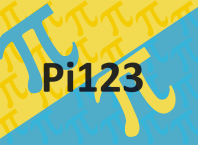In case you have already failed your dissertation paper, don’t despair. Often enough,you can get another chance to change or revise it and resubmit your work within a limited time frame. As a rule, this loophole can only get you a passing grade, so if you had hopes for honors, too bad. If this is the case, you can seek dissertation help online which will help you to improve your paper dramatically and on a tight deadline.
If you think you might be about to fail a dissertation project, then here are some techniques that you may leverage to avoid the worst case scenario.
Contents
Start right away
A dissertation is such a big project with so many academic requirements to fulfill that it can have a paralyzing effect even on the most eager students. However, the more you procrastinate, the tougher it will be to break the spell and actually start.
Begin with planning your work – outline month by month the stages of the dissertation project you expect to finalize by then. This will help you to ease the pressure and see this unsurmountable endeavor fall into less intimidating tasks.
Consult your adviser
A dissertation is a project where the assigned faculty member should be reviewing the paper and advising on improvements if necessary. It doesn’t mean that you should have a complete text to submit. You can (and should) submit parts of your dissertation as you work on them.
Sometimes inexperience researchers shy away from sharing their “work in progress” and wait for a big breakthrough to have something impressive to show for their efforts. This is a mistake. Think of your paper as of bespoke clothing – it needs regular fitting appointments to be perfect.
Improve your reading technique
Dissertation paper needs you to have extensive knowledge of your subject. Plus, you must take into account all the latest development that happens in the field as you work on your thesis. That is quite a lot of reading.That is why you should learn to read efficiently. You don’t have to read every word on the page to grasp its basic meaning and relevance to your own research. If it’s relevant – then go ahead and read the heck out of this article. It not – just skip it and move on to something more useful.
Some students make reading their way to procrastinate – they fall down the rabbit hole of monographs and peer-reviewed journals only to postpone the writing. “I am working on my dissertation, I am collecting relevant materials”. Now answer honestly, are you?
Take scrupulous notes
This is important mainly for two reasons. One reason is, having detailed notes on everything you’ve read during your research will make writing much easier. You won’t need to check the books out of the library only to look up the bibliographic data or some minor facts you thought were important enough to linger in your memory.
Another reason is, it will prevent you from unintentional plagiarism. If you neglect to jot down everything that caught your attention, you might unwittingly take some idea you’ve found in the text for your own. As a writer, you are accountable for not giving all the due credit to the original resource – be it a text or an idea. So to be always certain whether you’ve come up with something groundbreaking or you’ve just remembered someone else’s solution, take scrupulous notes.
Address any issues immediately
As soon as you realize you have a difficulty with understanding anything or finding relevant information, you should address this issue and tackle it before it’s too late. Don’t be afraid to ask your academic adviser for help. They are designated to guide you from the start until the end of your research. Meet them regularly so you will know your progress and how well you do in general.
Today educators have many channels to reach them, so you are not limited to office hours – you can email your adviser, chat with them on a learning platform, etc.












